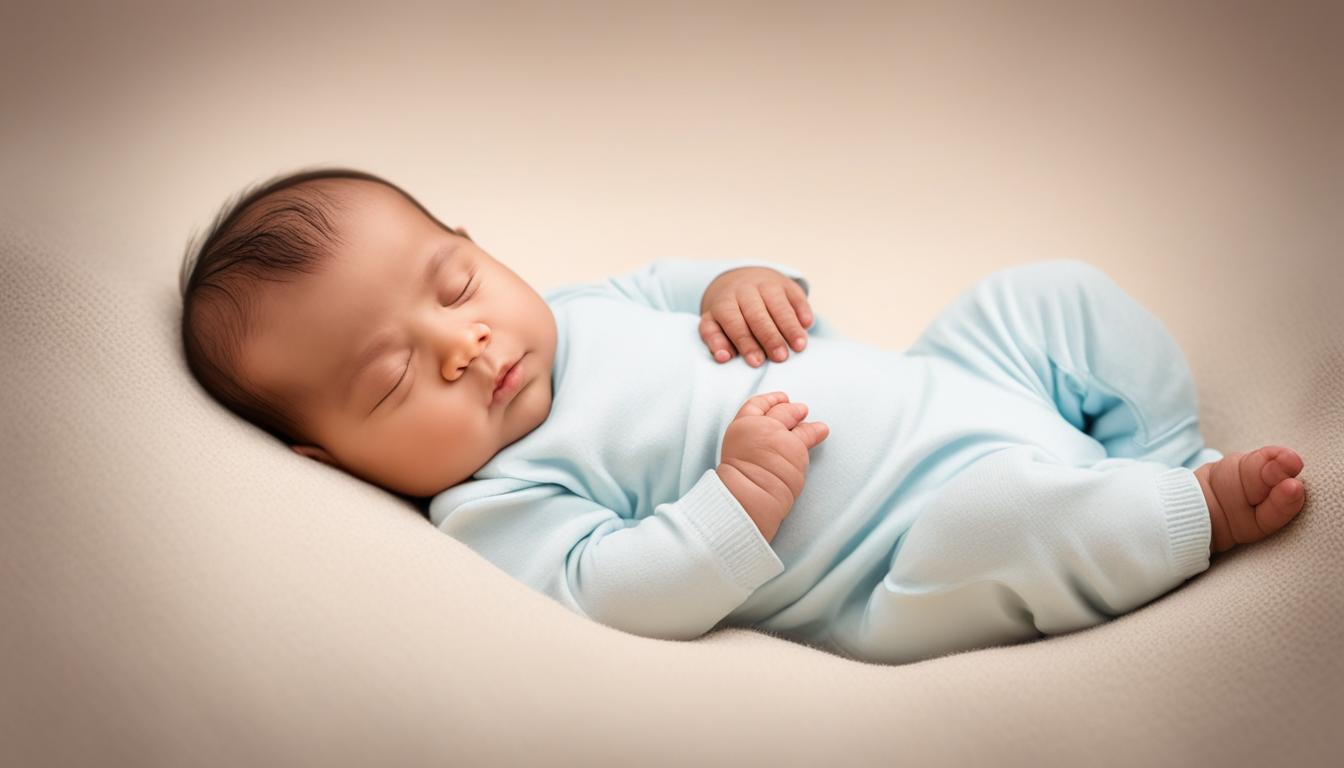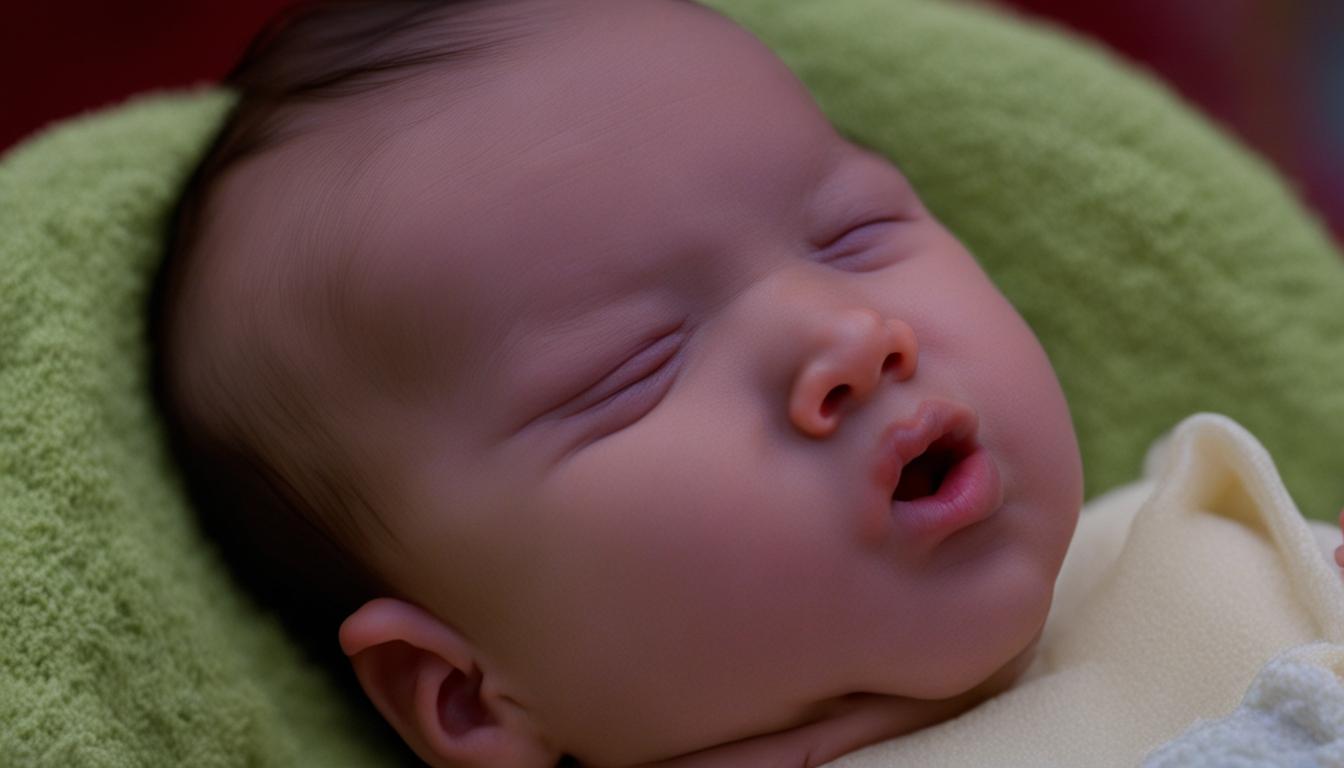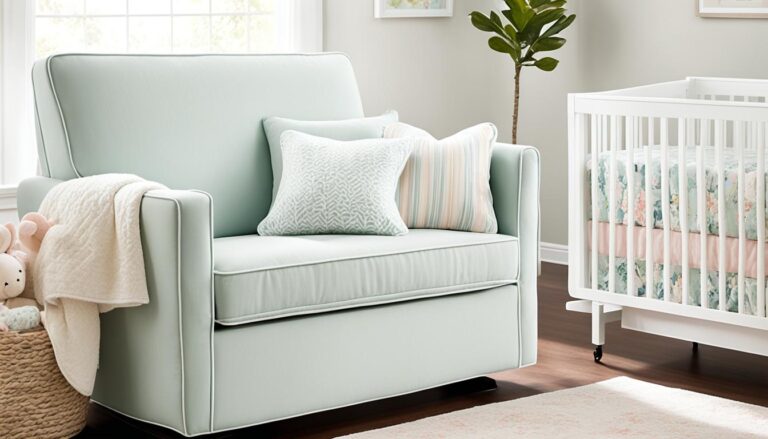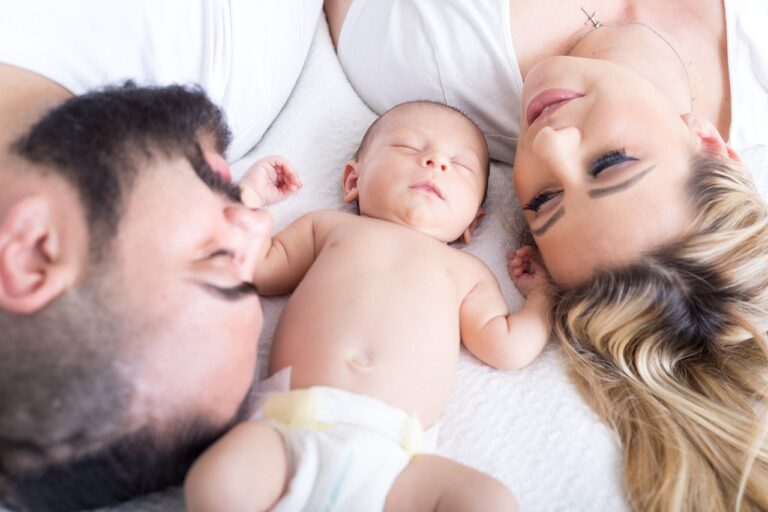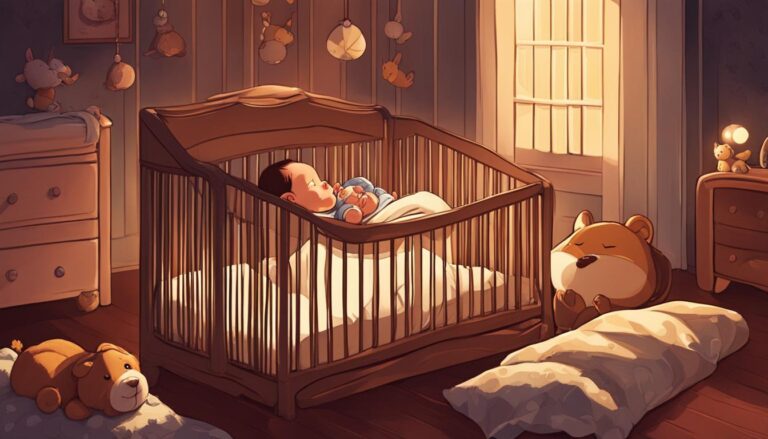Newborn Won’t Sleep in Bassinet – What Should I Do?
So, your newborn won’t sleep in bassinet and you are wondering what you can do. Not to worry because it happens to most parents with newborns and this guide is here to help you through it.
Whether night-time or during the day, seeing your baby sleep is one of the happiest moments as a parent. This is the time where you can see them being cute and warm while they sleep soundly.
Additionally, it’s a window for you to tend to other errands because you also have other things to focus on besides. Therefore, it can be frustrating when your newborn won’t sleep in bassinet.
To help you through this, we’ll look at some of the most common causes why your child refuses to sleep in their bassinet. Similarly, you’ll learn more about how you are supposed to react or do if they don’t.
Read on…
Reasons Why Your Newborn Won’t Sleep in Bassinet
As you may already know, your child may be more into the idea of sleeping soundly only when held. As a result, children may find it hard to fall asleep on their own unless you hold them.
Fortunately, there are several solutions when it comes to this issue. But before we look at the solutions, the following are some of the common causes why your child may be refusing to sleep in a bassinet.
- Hunger
Hunger is one of the most common reasons why your child may be refusing to sleep in their bassinet. This is completely understandable and it’s even the same when it comes to adults.
Although you can sleep hungry, you may easily find yourself up for a glass of milk or a midnight snack. Either way, it can be hard to sleep hungry especially for an infant who hasn’t yet developed completely to control themselves in such situations.
If your child is hungry, then they don’t expect any excuse from your side as to why they aren’t eating. Even sleep won’t hold them back, hence, a good reason why they may refuse to sleep in their bassinet.
So, what should you do if your newborn won’t sleep in bassinet because of hunger? The answer is straightforward, feed them and ensure that they are full.
If hunger was the problem, then your child might easily fall asleep even without needing you to hold him/her. Also, you would have eliminated it out of the many reasons that may cause your child to refuse sleeping on his/her own in the bassinet.
- Wrong Temperature
The temperature of a bassinet is another significant contributing factor to your child’s sleeping habits. Like you, your infant needs the right temperature to sleep soundly.
Therefore, your baby may easily refuse to sleep in their bassinet if the temperature inside isn’t right. Besides that, your child’s body temperature is also another significant consideration.
The best temperature inside your baby’s room should be around 68 – 72 degrees Faraday or 20 – 22 degrees Celsius. Check if your child is shivering or sweating too much to ascertain if it is the wrong temperature causing them not to sleep well in bassinet.
- Gas
Burping your child before putting them down or holding them to sleep is an essential practice that shouldn’t be taken lightly. It allows your child to burp and remove any excess gas that they may have after breastfeeding.
Passing gas is also another way for children to relieve themselves from a bloated stomach, which can be uncomfortable when sleeping. Ensure that you burp your child every time after feeding them before you place him/her in bassinet to sleep.
- Soiled Diaper
Sleep is all about comfort, and if your child doesn’t get enough of it, sleeping anywhere can be difficult. That’s why their bassinet is cosy and warm among other things.
As you may know, a dirty diaper isn’t in any way a comfortable experience for your child. Therefore, this is another reason that may easily cause your child to refuse sleeping in their bassinet.
Check your newborn’s diaper now and then to ensure that they are clean and not soiled. Similarly, change them if they get soiled and set your child back to sleep to see if it was the dirty diaper troubling them.
- Confusion between Day and Night
If your newborn won’t sleep in bassinet, it might be because they don’t yet know the difference between day and night. This especially happens if you keep the lights during the day.
By keeping your lights on during the day, it might easily extend their awake time. Therefore, you need to create appropriate sleeping routines for your newborn and ensure that you implement them accordingly.
- Excess Swaddling
Swaddling is an essential practice for putting your child to sleep. However, it no longer helps if your newborn is learning how to roll.
That’s because their startle reflex might easily cause them to wake up when they should be falling asleep. Therefore, you need to ensure that this practice stays at a reasonable momentum.
What to Do if Your Newborn Won’t Sleep in Bassinet
As you’ve seen, there are many reasons that may cause your child to refuse sleeping in the bassinet. And now that we’ve exhausted all the possible reasons that may lead to such a predicament, let’s see some solutions you can apply.
First, understand that your newborn was accustomed to sleeping in a warm, dark, and comfortable womb just a few weeks or months ago. Therefore, you need to customize the bassinet accordingly to resemble the features inside your child’s initial sleeping place – the womb.
With that in mind, let’s see what you can do if your newborn won’t sleep in bassinet.
Create a Solid Bedtime Routine
According to research, implementing a consistent and steady bedtime routine for your child helps them fall asleep accordingly. Creating a bedtime routine is one of the most common pieces of advice you can get as a parent, and that’s because it’s good advice.
At this point, your child is too young to determine the appropriate time to sleep and wake up. Therefore, creating and implementing a solid and consistent bedtime routine is a good way to help them through this stage.
Thus, it might not even be something related to the bassinet or their health and comfortability. Just implementing the right sleeping routine for your child might easily help your child to sleep well in the bassinet.
However, you still need to consider their tender age and mind development. Remember, your newborn can’t yet capture and process too much information at once.
So, you need to start slowly with few and simple actions for them to follow when creating and implementing a bedtime routine. To help you, below is what a good bedtime routine for your newborn is supposed to look like:
- Start with a bath
- Massage your child lightly
- Play with him/her quietly
- Sing or read to them
- Swaddling
- Cuddling before putting them down to sleep
By the time you are cuddling your newborn, it’s most likely that they will be drowsy enough to already fall asleep. Ensure that you follow the exact same routine every time you want your infant to sleep and they will always respond accordingly.
Put Your Child Down when Drowsy
This might be hard to hear but you shouldn’t allow your child to fall asleep on your arms or while you are swaddling them. It’s not a good practice because your child might easily become over dependent on sleeping on your arms.
This is actually one of the most common reasons why your newborn may refuse to sleep in bassinet. Therefore, you need to start putting your child down on the bassinet immediately when you notice they are getting drowsy on your arms.
This way, your newborn will understand that he/she doesn’t necessarily need your help all the time to fall asleep. It’s a proven method and one that has helped most parents with bassinet sleeping issues.
Swaddle Your Newborn
If your child can sleep in a bassinet, then you can implement swaddling to help them fall asleep. Swaddling is also a part of a solid bedtime routine and works every time especially with newborns.
It’s also risky to leave your child rolling in the bassinet all alone at such a young age. Therefore, swaddling is a good way to keep them safe and help them fall asleep inside the bassinet.
Apart from helping them to sleep, the following are some additional benefits of swaddling your child:
- It helps them feel secure
- Swaddling reduces your child’s startle reflex
- Swaddling also lessens your child’s anxiety
As you’ve seen, your child can benefit a lot from swaddling besides from only helping him/her to sleep. Similarly, you’ll have less to worry about with their sleep time and focus on running other essential errands.
Stall Before Checking on Your Child
Aside from hunger or any other reasons, newborns are usually restless and may cry in the bassinet for no apparent reasons. Therefore, don’t jump immediately to take them out and swaddle them if they start crying.
You can just check in and hesitate a bit to see if they can resume sleeping on their own. Stall for about 3-5 minutes maximum to see if your child will go back to sleep alone.
If it doesn’t happen, then you can jump in and rescue them from whatever is causing them to refuse sleeping. At this point, you can check your newborn’s diaper and temperature among other things to see what might be keeping them awake.
Bassinet Safety Tips
All the explained solutions can help your child to fall asleep soundly if he/she is having trouble sleeping in a bassinet. However, you still want to be sure that your newborn is sleeping in the safest place and way possible.
Thus, the following are some of the key bassinet safety rules to ensure that your child sleeps soundly and safely.
- Avoid Sleep Positioners
If your child is suffering from acid reflux or likes to sleep on their stomach, you might decide to use a sleep positioner. Sleep positioners stop your child from rolling over when your child is in the bassinet sleeping.
However, they can be suffocation risks if your child starts rolling over from side to side. In fact, the American Academy of Paediatrics has never cleared sleep positioners as safe resources for infants.
- Avoid Sleep Wedges
Like sleep positioners, sleep wedges are also used to help children with acid reflux. Sleep wedges go on top of your child’s bassinet mattress or their crib.
Although this is a good way to assist your child sleep better, sleep wedges also pose similar risks like sleep positioners. Therefore, it might be best to avoid using them in your infant’s bassinet as sleep enhancements.
Conclusion
Your child needs adequate sleep to grow and develop. Similarly, you also need to get enough sleep to be fresh the next day when your child needs you.
Hence, a bassinet is the safest and most comfortable option for your newborn when they need to sleep. So, what happens when your newborn won’t sleep in bassinet?
Well, ensure you don’t panic first and take the time to understand what might be the problem. As explained earlier, there are several reasons that might negatively impact your child’s refusal to sleep in their bassinet.
Fortunately, there are solutions to such reasons and you can assist your child sleep accordingly using the tips given. By trying things such as creating a consistent sleeping routine and swaddling your child to sleep, among other things, your child can easily sleep soundly in their bassinet.
Besides that, you should also ensure that your child stays safe when sleeping in the bassinet. Avoid using things such as positioners and wedges to prevent suffocation risks from your newborn. It’s professional advice as pointed out earlier and you wouldn’t want your child to be exposed to such risks when you can prevent it from happening.
Lastly, ensure that you employ patience with your child with every method that you decide to use to help them sleep in the bassinet. Remember, they are still growing and developing so they can’t process things as fast as you can.



